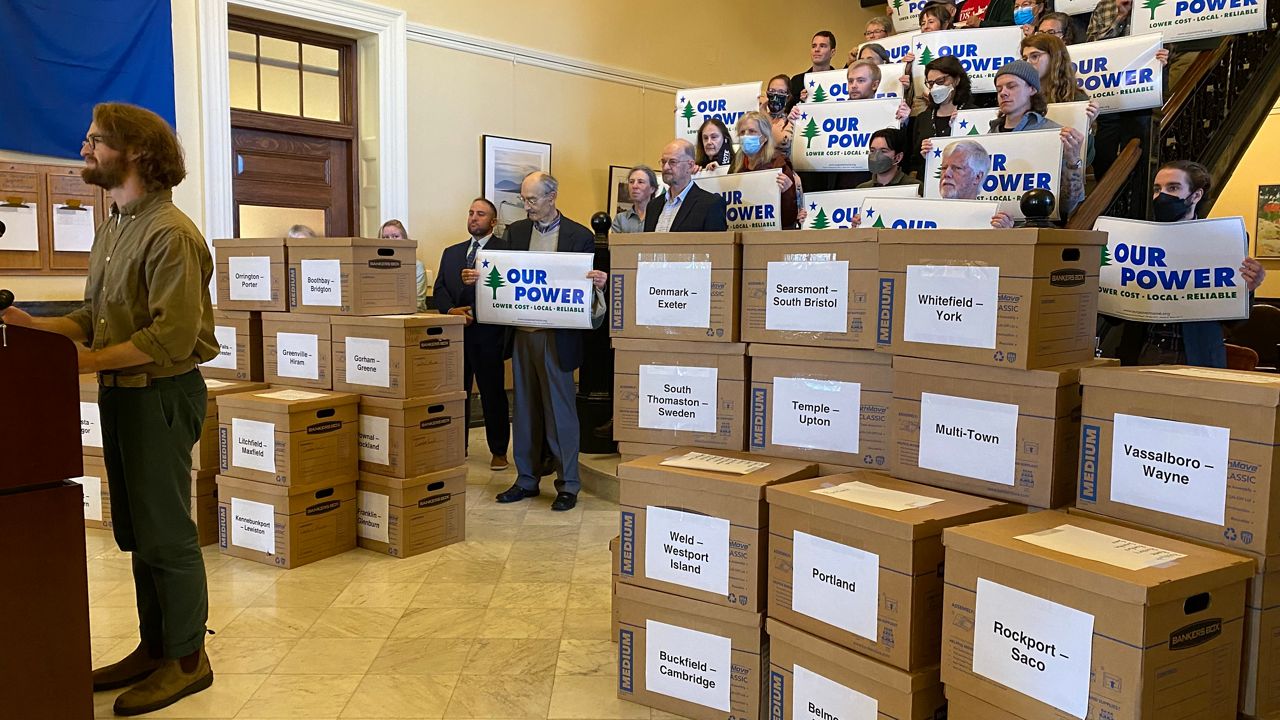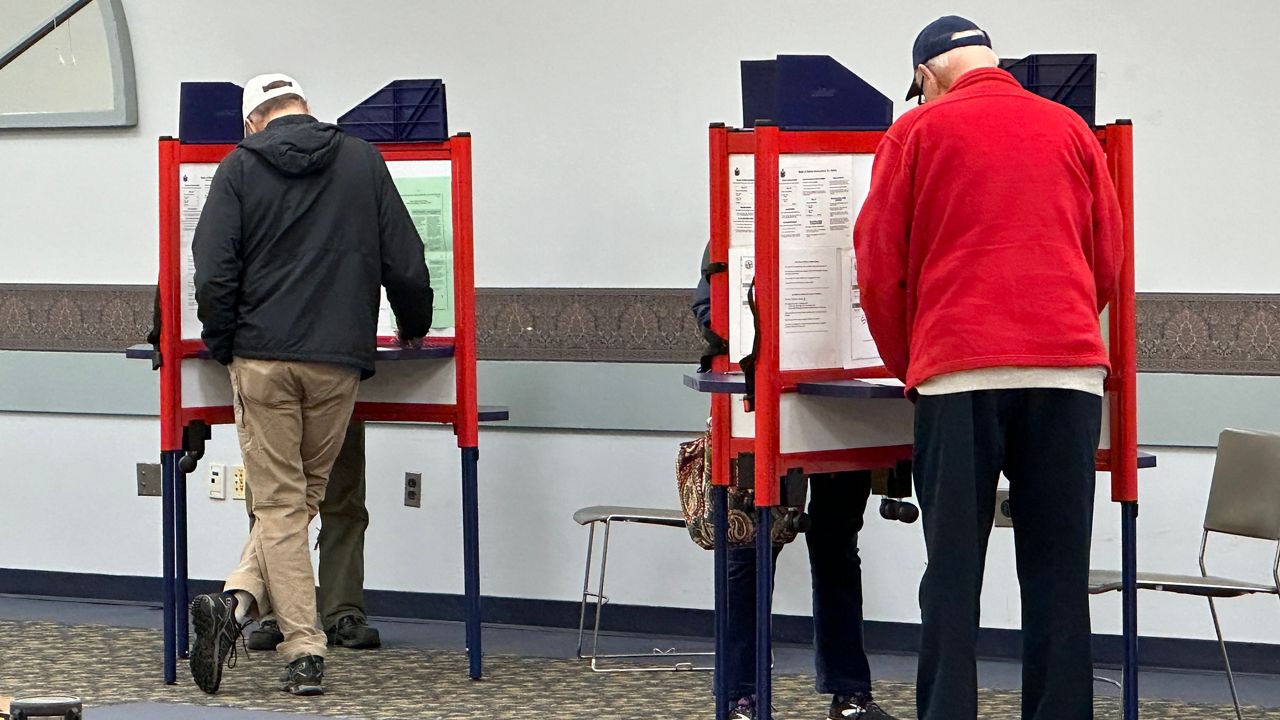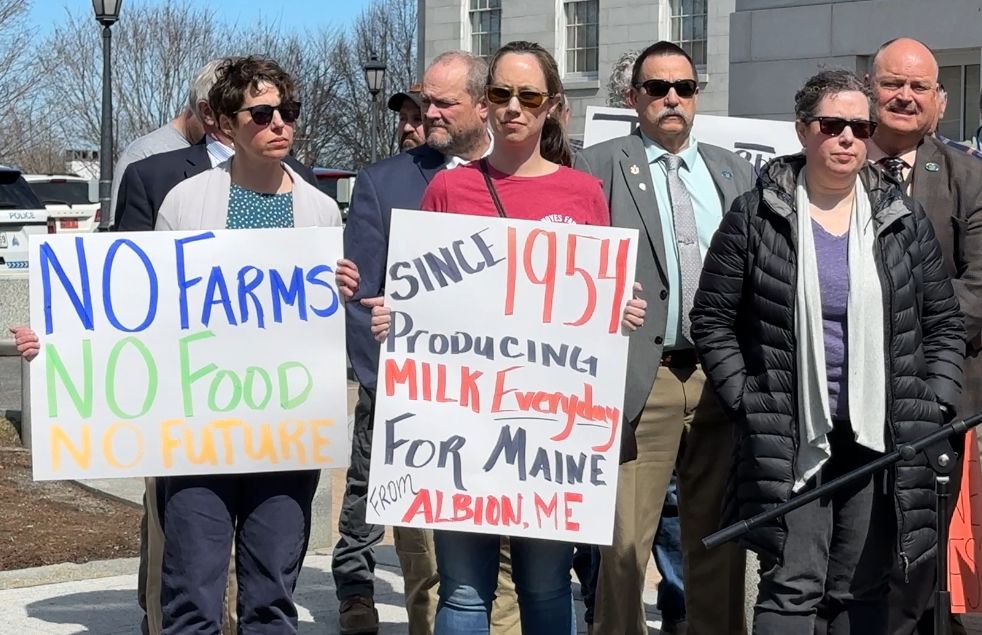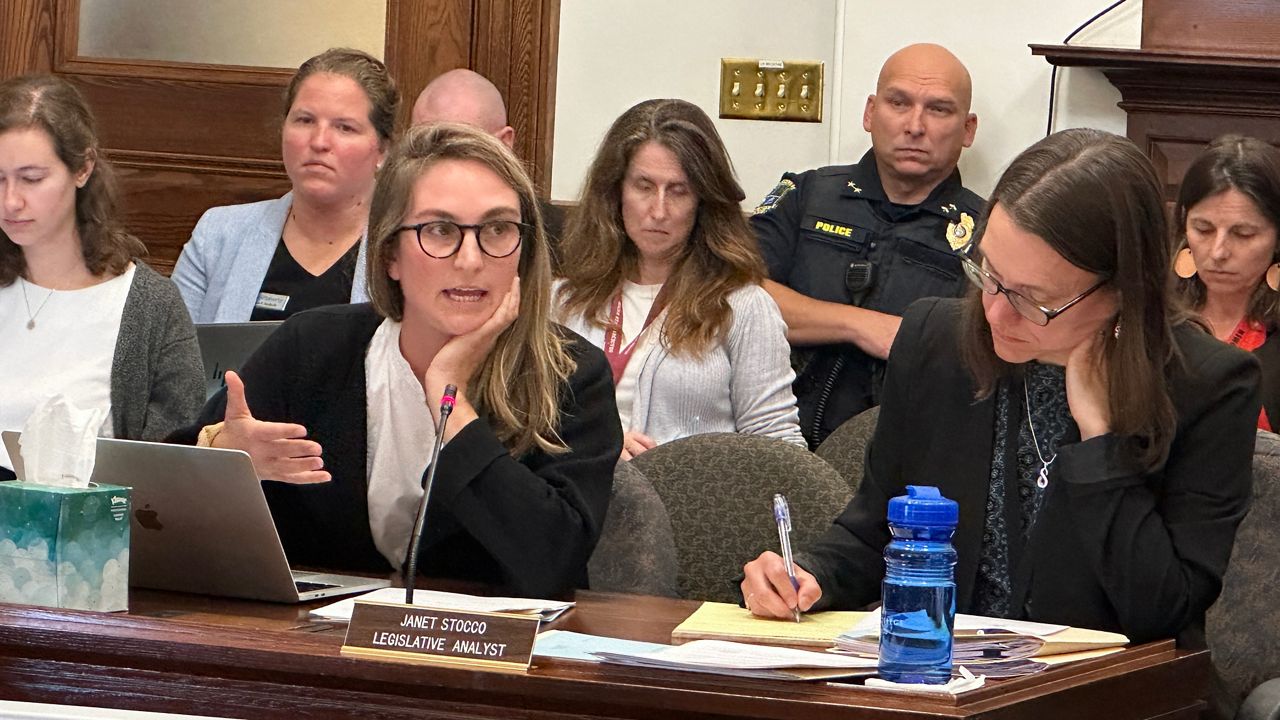Voters on Nov. 7 will be asked to decide two questions related to the state’s electric utilities.
Question 1 requires voter approval for “all consumer-owned electric utilities” and some governmental entities to borrow more than $1 billion.
Question 3 asks whether voters want to buy out Central Maine Power and Versant Power and replace them with a nonprofit governed by an elected board.
The questions are two of eight that will appear on the ballot.
Question 3 is lining up to be an expensive campaign, with CMP and Versant spending more than $34 million to try to defeat the effort to create Pine Tree Power, according to state campaign finance reports.
But supporters of the idea, who have raised about $1 million, say Mainers should give serious consideration to changing who controls the electricity in Maine.
“Investor-owned utilities have brought us high bills, unaffordable power and the worst customer service in the nation,” said Al Cleveland, campaign manager for Our Power, the group leading the effort in support of Question 3.
Opponents say there are too many questions about the overall cost, how the nonprofit will be governed and the potential for lengthy litigation.
“There’s not a single thing in the Pine Tree Power proposal that guarantees an improvement in reliability,” said Willy Ritch of the Maine Affordable Energy Coalition. “The concern is about the risks and the unknowns.”
The coalition is the leading ballot question committee that opposes Question 3 and is largely funded by CMP-parent company Avangrid, which has donated $21.3 million through Sept. 30.
Avangrid is a subsidiary of the Spanish company Iberdrola.
Versant parent company Enmax, which is based in Canada, has donated $13.4 million in opposition.
Because of a random-chance ballot order, voters will be asked to decide the borrowing question before the Pine Tree Power initiative. But it’s easiest to understand the issues by considering Question 3 first.
QUESTION 3
Question 3 ended up on the ballot following Gov. Janet Mills’ veto of a similar bill in 2021. In response, a group called Our Power circulated citizen petitions to get the question before voters.
Mills recently came out in opposition to the ballot question.
“Because Question 3 is a hostile take-over of our utilities with eminent domain, we are guaranteed to go to court and to be tied up in litigation for years, if not decades,” she said. “That leaves our utilities in a dangerous state of limbo when we can least afford it.”
Yet the Natural Resources Council of Maine, the state’s largest environmental organization, came out in support of Question 3, saying it would restore local control, save money and build a better business model.
“Capturing the opportunities of the clean energy transition hinges on having renewable energy like wind and solar delivered through a reliable, flexible and affordable electric grid to every Maine resident and business,” Rebecca Schultz, NRCM senior advocate, wrote in announcing the endorsement.
One big question hanging over the debate is how much it would cost for a nonprofit to acquire CMP and Versant. The companies say it would cost $13.5 billion, but supporters of Pine Tree Power say the companies are likely inflating their values.
As Cleveland said during a recent forum on the ballot question in Augusta, there’s no way of knowing right now what the cost will be and that it would likely be decided by a third-party.
Cleveland says the takeover would save Maine consumers $9 billion over 30 years once the for-profit companies are replaced by a nonprofit.
That’s because the nonprofit won’t need to pay shareholders and because it will be able to borrow money at lower rates — estimated to be 2-5% interest — because it will be a publicly owned utility.
Across the state, public utilities in Kennebunk, Houlton and Madison have offered rates 50% lower than what’s paid by CMP and Versant customers, Cleveland said.
If voters approve Question 3, the nonprofit would be governed by a group of seven elected board members who would then choose six experts to fill other board positions.
By law, the nonprofit cannot use general obligation bonds or state tax dollars. It will issue debt against future revenues to purchase the facilities of CMP and Versant.
Opponents say the nonprofit will have to contract with a company to actually run the system, adding another layer of uncertainty to the process.
“The utilities would still have to be operated by a for-profit company,” Ritch said.
Cleveland said while that may be the case, the board will solicit bids from operators, creating competition in the marketplace that doesn’t currently exist.
QUESTION 1
CMP and Versant launched their own petition effort in response to the Pine Tree Power initiative that would require a second vote on the cost if Question 3 passes.
If Question 1 fails and Question 3 passes, the utility takeover will begin without delay. But if they both pass, the takeover would likely be delayed until another statewide vote can take place, according to Maine Office of the Public Advocate.
Supporters of Question 1 pitch the idea as a safeguard against a potentially expensive proposition.
“We just said fine, if you are going to ask voters to take on a multi-billion debt you should make sure you know how much it is,” Ritch said.
Cleveland testified in support of Question 1 before lawmakers earlier this year, describing it as an attempt to stop Pine Tree Power “by bringing fear to voters.”
“We know that Maine voters are smarter than this and deserve to have all of the information about their utilities,” Cleveland said. “We support any efforts to provide more transparency and education to Mainers.”








)
